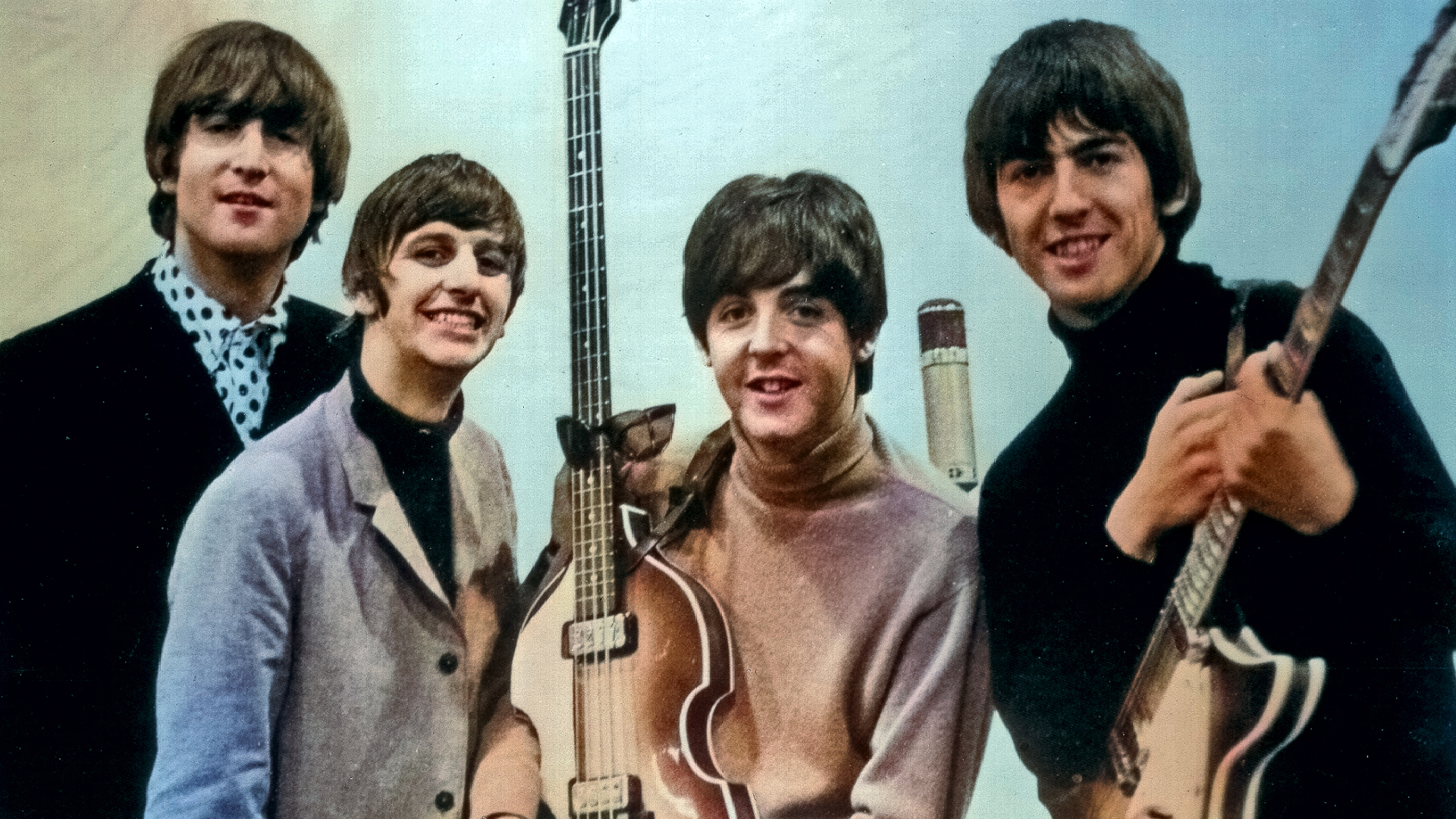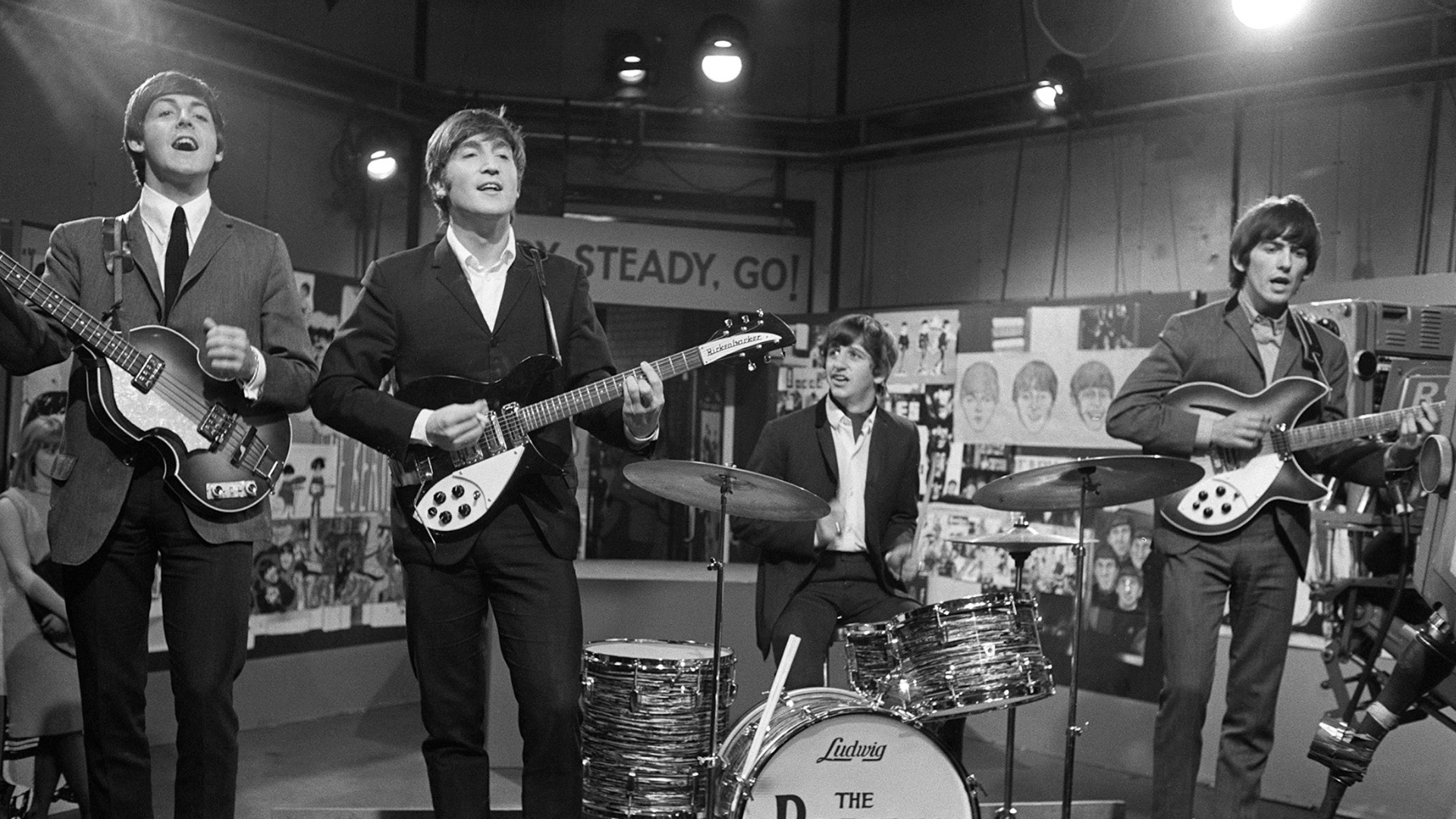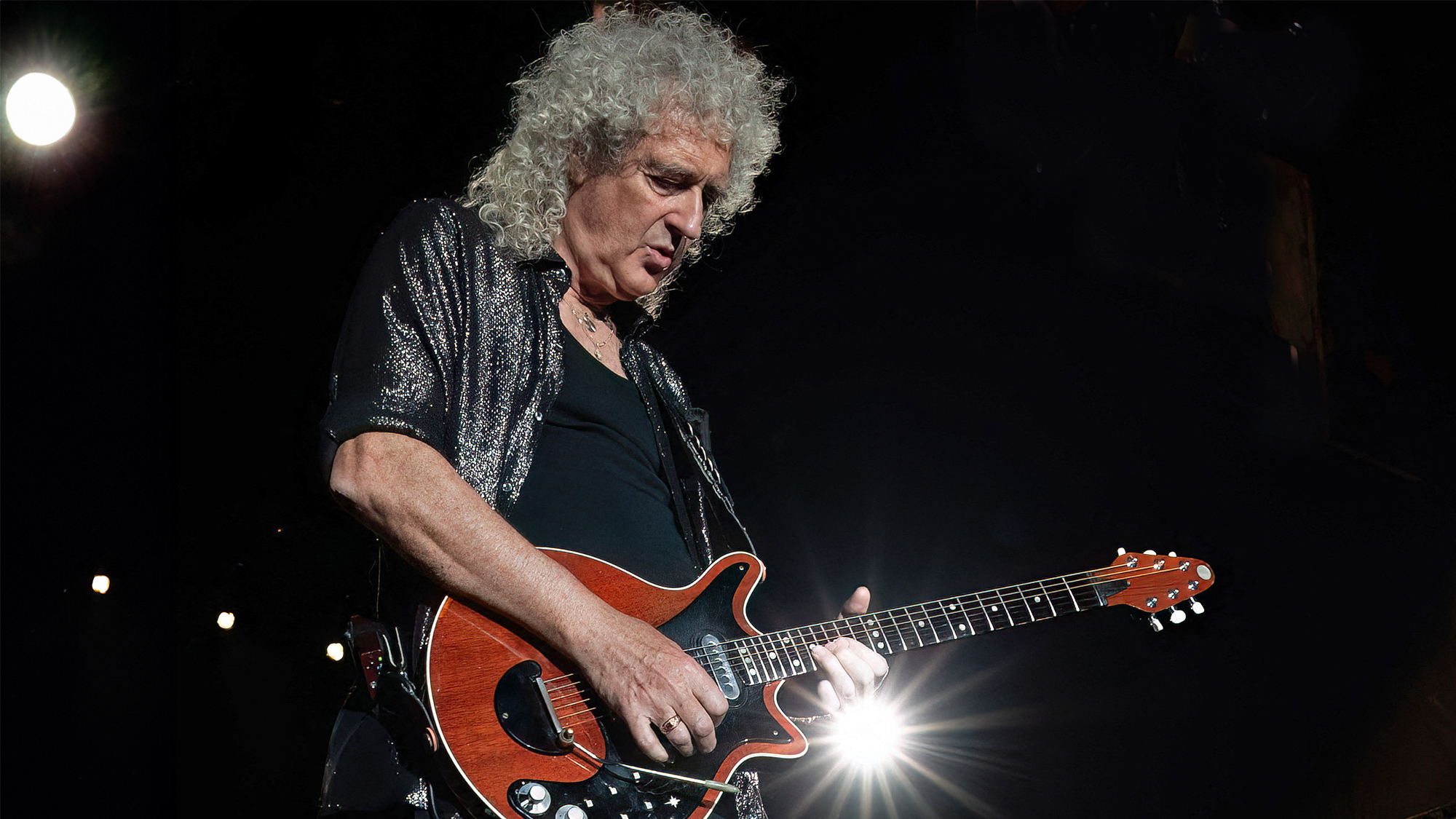
When Brian Ray joined Paul McCartney’s band in 2002, he was tasked with learning more than 40 songs — in one week.
“Fortunately, I listened to the Beatles nonstop throughout my life, so I already knew most of them,” he says. “Of course, it’s much different when you’re playing in a band that, oh yeah, is led by Paul McCartney himself. Needless to say, I immersed myself in the material.”
But Ray quickly discovered that there’s a difference between how the Beatles recorded the songs and how they need to be played onstage,
“It’s one thing to listen to these songs and appreciate them as a fan, as we’ve all done,” he says. “But when you start digging into them and analyzing them, you’re just astounded by the creativity and depth. Even stuff that sounds simple isn’t simple at all. I’m constantly amazed at the brilliance in these songs, and that feeling grows stronger all the time.”
Given his rarified position, Ray has some unique insights for guitar (and bass) players looking to incorporate Fab Four material into their repertoire.
“It’s important to have respect for the Beatles’ records,” he says. “On the other hand, you don’t want to sound like karaoke. And if you’re like me and you grew up on these records, they’re part of your DNA. You’ve memorized every upstroke and downstroke.
“Given all that, I think it’s important to remember that these records were made by real humans in a room. The Beatles played what they felt, and they responded to one another. Some of their recordings were done in one take, but others required multiple takes, and each one varied from the previous recording.
All the latest guitar news, interviews, lessons, reviews, deals and more, direct to your inbox!
"If you’re like me and you grew up on these records, they’re part of your DNA. You’ve memorized every upstroke and downstroke"
—Brian Ray
“When I play with Paul, he isn't trying to play every single note on piano, guitar or bass like he did on the record. He doesn’t sing the songs like he did on record. Nobody is trying to duplicate the recordings. And that’s the advice I have for anybody who wants to play Beatles’ songs: Play them the way you feel. Use the records as a framework, and then go for it.”
However, Ray believes guitarists should attempt to approximate the Beatles’ guitar tones.
“I think this is a crucial part of putting the songs over live,” he says. “If you want to play the material in the spirit of the originals, it helps to stay true to them tonally.

“For example, when I play older Beatles songs, I’ll use a big hollowbody Gretsch along the lines of what George used at the time. I’ll dial up some EQ on my pedalboard to get them a little more trebly. When I play the rockabilly-type solo on ‘All My Loving,’ I’ll add a quick slap delay — that seems to work just fine. On later Beatles songs, I’ll veer off into SGs and Les Pauls, both of which George played.
If that sounds daunting, take heart: You don’t need a massive guitar collection to do the job. “If you’ve got a Fender and a P90 guitar, like an SG, you should be able to handle the sound of most any Beatles song,” Ray says. “Just choose the one that gets you pretty close to what you’re hearing. You can amp and EQ each guitar to get clean or dirty sounds, maybe add a bit of compression, and you’ll be fine. You don’t need to use a lot of effects.”
Because Ray also handles bass duties in the group when McCartney is playing guitar or piano, he has some unique insights to playing McCartney’s bass lines as well. Though you’ll never find the job as daunting as he did.
“For the first six months, I barely looked up because I just wanted to play the parts right, and I didn't want to get distracted by the fact that Paul McCartney was 15 feet away from me,” he says. “I would have lost my mind.”
Besides, he admits it would be impossible to replicate Macca's bass lines with the same supple touch and tone. “His touch on the fretboard was so deliberate, but at the same time so light. On some of those records, it sounds like he’s playing a fretless bass; you can hear him just gliding on those flatwound strings. His playing is idiosyncratic. Maybe it’s because he started out as a guitarist who switched to bass. Like me, it wasn’t his first instrument.
“I don’t think it’s important to use the same bass as he did. I don’t use a Hofner or a Rickenbacker. I play a 1963 Fender P Bass that looks like it’s been dragged from behind a motorcycle. It’s totally beat up, but it sounds just wonderful.
"When I play with Paul, he isn't trying to play every single note like he did on the record. Nobody is trying to duplicate the recordings."
—Brian Ray
“And remember that certain parts are really hard to nail. For instance, on ‘Getting Better,’ on the first chorus he plays a wonderful walking quarter-note bass line, but on the other two choruses he mixes in sustained half notes. I want to honor that when I play it live. But one time in rehearsal I made a mistake in the chorus, and Paul asked, ‘Why don’t you just play it the same way each time?’ I said, ‘Because it’s so cool how you did it on the record.’
“I say all this with the knowledge that nobody can ever play these songs the way Paul did, but as always, what matters is that you play with spirit and love.”
As a final rule, Ray says that to most successfully perform the Beatles’ material, it's essential that you nail the solos exactly. Those, he says, “demand to be played as accurately as possible.
“Take John Lennon’s solo on ‘Get Back.’ He was mirroring Paul’s vocals. I think John had a very reverent approach to that solo because he was a songwriter. I do my best to play that solo the way John did — both solos, actually. At the end, Paul has encouraged me to stretch out a bit, so I’ll do an extra four bars or something. I’ll throw in a little B.B. King or Clapton feel — something that feels appropriate. But I wouldn’t do that without first nailing the solo that everybody knows. I couldn’t imagine playing it any other way.”

Joe is a freelance journalist who has, over the past few decades, interviewed hundreds of guitarists for Guitar World, Guitar Player, MusicRadar and Classic Rock. He is also a former editor of Guitar World, contributing writer for Guitar Aficionado and VP of A&R for Island Records. He’s an enthusiastic guitarist, but he’s nowhere near the likes of the people he interviews. Surprisingly, his skills are more suited to the drums. If you need a drummer for your Beatles tribute band, look him up.
